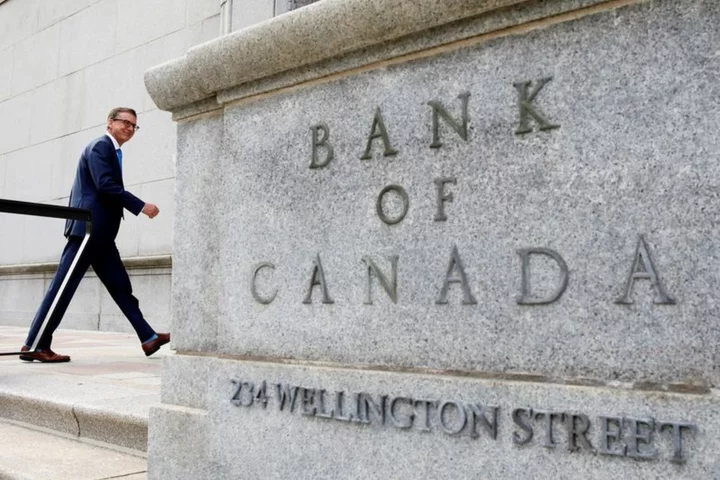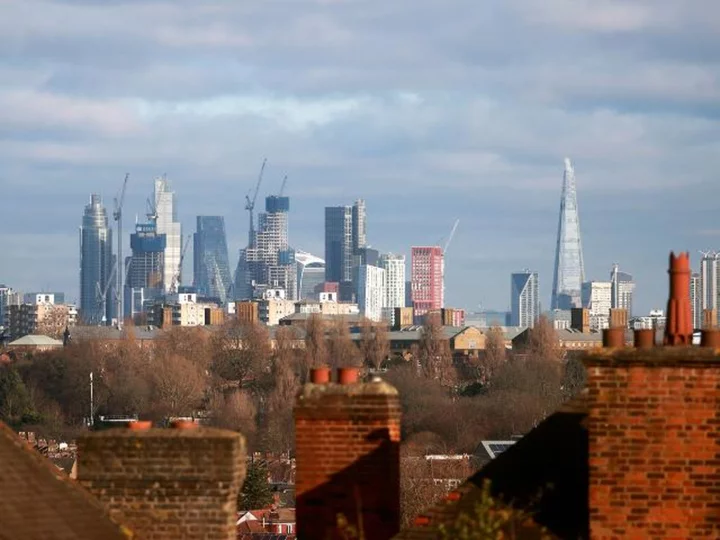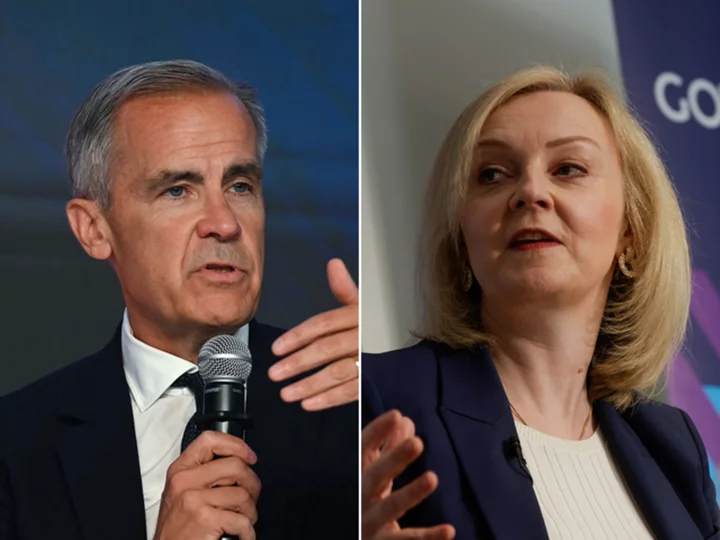By Steve Scherer and David Ljunggren
OTTAWA, Oct 16 Canadian businesses see inflation easing over the next two years, though many still expect it to take more than three years to return to the central bank's 2% target, the Bank of Canada said on Monday in a third-quarter survey.
The business outlook survey index fell to its lowest since the second quarter of 2020, when COVID-19 forced many businesses to shut down. About a third expect a recession over the coming year, the same level as the previous quarter, the survey said.
Some 27% of businesses see it taking more than three years to bring inflation down to 2%, down from 32% the previous quarter, the central bank said. Some 53% of businesses see inflation remaining above 3% over the next two years, compared with 64% the previous quarter.
"Reports of softer demand are broad-based," the survey said. "Signs indicate that pricing behavior is moving toward normal ... A continued softening in demand conditions is creating an environment where firms are less able to pass through input cost increases."
Bank of Canada Governor Tiff Macklem last week said inflation expectations would be among the data analyzed when the governing council weighs whether to let previous rate hikes work through the economy, or raise again to counter sticky inflation.
The Bank of Canada kept its key rate at 5% on Sept 6, noting that the economy had entered a period of weaker growth, but said it could hike again should price pressures persist. Its next policy decision is due on Oct. 25.
The central bank has hiked interest rates 10 times since March of last year to a 22-year high, but it still does not see inflation slowing to its 2% target until mid-2025.
Growth unexpectedly shrank in the second quarter and stalled in the first two months of the third, while core inflation has proven sticky. September inflation numbers are to be published on Tuesday.
A separate Bank of Canada survey showed consumers' inflation expectations for the next year eased slightly, though they remained at more than 5%. Canadians still perceive inflation to be much higher than it is - at 6.6% instead of the 4.0% recorded in August.
"The gap between perceptions of inflation and actual inflation is unusually wide," the survey said. Consumers likely form their views from their shopping experience and expect high price growth for essentials like food and housing, it said.
Wage pressures, another factor being closely watched by the central bank, are easing, though businesses still expect to make higher-than-normal wage increases over the next year, the business survey showed.
"Firms reported a widespread easing in the intensity of labor shortages compared with the very tight labor market at this time last year," the survey said.
(Reporting by Steve Scherer, editing by David Ljunggren)
((Reuters Ottawa bureau, david.ljunggren@tr.com))
Keywords: CANADA CENBANK/









